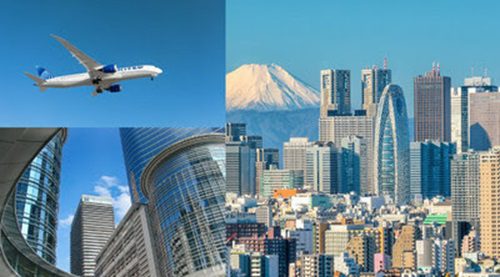In an audacious stride towards enhancing U.S.-Japan air travel connectivity, United Airlines recently submitted a proposal to the U.S. Department of Transportation to initiate the first-ever daily nonstop flights between Houston’s Bush Intercontinental Airport and Tokyo’s Haneda Airport. This pioneering venture, if approved, will mark United as the inaugural U.S. carrier to bridge these two major cities with a direct flight.
Houston, a city witnessing a demographic and economic surge, stands to benefit immensely from this potential airway. With over 240 Japanese-affiliated companies thriving in the region and a population growing briskly, the direct Houston-Haneda link is more than a convenience; it’s necessary. This route is a transportation conduit and a vital artery for fostering economic and cultural exchanges between the U.S. and Japan.
Patrick Quayle, the Senior Vice President of Global Network Planning and Alliances at United Airlines, emphasized the strategic importance of this route. “Houston is rapidly evolving into a pivotal hub for both business and leisure travel, fueled by its burgeoning energy and innovation sectors. This new service, subject to DOT approval, will not only facilitate travel for Southern U.S. consumers to Tokyo Haneda but also fortify the economic bond between Japan and the numerous Japanese businesses operating in the greater Houston area.”
United’s Japanese network is a testament to the airline’s commitment to promoting competition and offering reliable, cost-effective service to U.S. travellers. The airline’s comprehensive route network, the most extensive U.S. carrier, includes multiple flights to Haneda and Narita airports from its seven U.S. hubs.
In Houston, United reigns as the largest airline, employing over 14,000 individuals and managing more than 400 daily departures, of which over 70 are international. The economic impact of United’s IAH hub is significant, contributing an estimated $5.3 billion annually to Texas’s GDP, thanks to spending by foreign visitors and United’s direct employment.
The Houston-Tokyo route is more than a flight path; it represents a conduit of commerce and culture. Houston, a global healthcare, manufacturing, and energy leader, shares robust economic ties with Japan. The city’s recent designation as one of seven regional clean hydrogen hubs by the U.S. Department of Energy, supported by Japanese subsidiary Mitsubishi Power Americas, is a testament to these strong bonds.
Japanese companies employing over 70,000 Texans have made significant investments in the state. The Texas Development Corporation reports that these companies have executed 119 investment projects in Texas over the past decade, amounting to $6.9 billion and creating 19,620 jobs. Conversely, Texas firms have invested substantially in Japan, further cementing this trans-Pacific economic partnership.
This proposed route is more than a mere convenience for travellers; it’s a strategic link that promises to fortify the strong economic, cultural, and diplomatic ties between the U.S. and Japan. As such, it’s not just a flight; it’s a flight path to a more interconnected and prosperous future.
Written by: Christine Nguyen





















